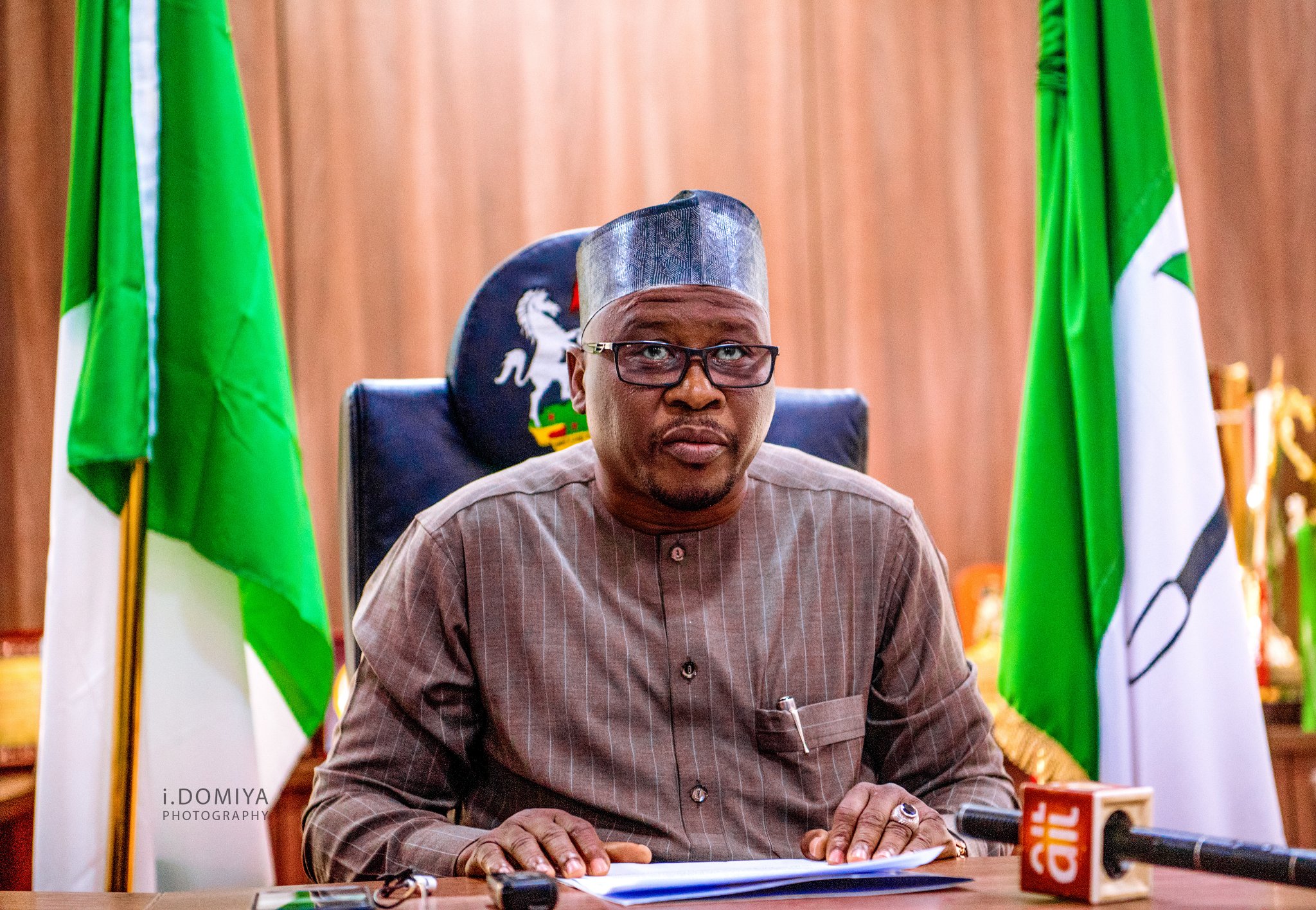Agriculture
Nigeria, China begin implementation of Crop-Watch programme

Nigeria, China begin implementation of Crop-Watch programme
The National Space Research and Development Agency (NASRDA), in collaboration with the Aerospace Information Research Institute, and the Chinese Academy of Science (AIRCAS) has begun the implementation of the Crop-Watch Nigeria Innovative Programme.
The implementation of the programme started with a workshop on Monday organised by NASRDA to empower participants with the skills of collection and interpretation of agricultural data in Abuja.
Part of the objectives of the programme is to ensure that the zero-hunger agenda of the Sustainable Development Goals is achieved.
The programme also provides access to a timely food information system, improving crop production using space science and technology.
Crop-Watch programme is China’s leading agricultural monitoring system, using remote sensing and ground observation data to evaluate crop growth, yield and related information at national and global levels.
The programme is being supported by the United Nations Conference on Trade and Development (UNCTAD) and the Alliance of International Science Organisations (ANSO).
The Director-General of NASRDA, Dr Halilu Shaba, said that the Crop-Watch initiative was used to address food problems in China.
“Looking at how Crop-Watch helped China, you will know that agriculture depends so much on information for its accuracy and for full benefits.
“We agreed that we want to use the methodology so that we can provide necessary information to farmers and be able to advise the public and government on what is to be achieved.
“The whole idea is for training and customisation so that it will fit into what Nigeria is doing,’’ he said.
Dr Adepoju Matthew, Director, Strategic Space Application Department, said that zero-hunger cannot be achieved without the application of space science and technology.
Matthew said, “On this Crop- Watch, when our satellite goes over the country, it gathers the information on vegetation.
“Through that, we look at various crops planted in Nigeria, we check the health of the crop, the weather condition, soil type and more.’’
Associate Prof. of AIRCAS, Miao Zhang, said that they were collaborating with NASRDA to provide capacity-building programmes on the collection of data.
Zhang, also a key member of the Crop-Watch team, said the data will be used as a set and validation to prove the validity of the programme and agricultural practices.
“This training will focus on data collection in support of GVG, (an agricultural information collection app) smartphone apps, which will be used for high-resolution crop mapping,’’ he said.
Dr Rakiya Babamaaji, Coordinator, Crop-Watch Nigeria, recalled that they signed a 3-year Memorandum of Understanding on July 4, 2022, with AIRCAS to customise the programme for Nigeria.
Babamaaji said that the platform for Nigerian Crop-Watch will be developed and everybody will have access to information on remote sensing-based information concerning agricultural monitoring.
According to her, the platform will also provide high-resolution data on land use, land cover, also for early warning activities in the country.
“The training will help participants understand how to interpret this data and translate it to local farmers,’’ she said.
She mentioned that their major stakeholder is the Ministry of Agriculture and Food Security, adding that in early 2024, they will train agricultural extension workers, and NGOs on agricultural monitoring and data interpretation.
Mr John Itodo, Deputy Director, Agric Research, Planning and Policy Coordination, Federal Ministry of Agriculture and Food Security, said the ministry has recognised the need to engage technology for precision agriculture.
Itodo said that Crop-Watch has the capacity to provide robust information for forecasting and farmers’ use for agricultural processes.
“The last meeting was to see how many crops will be covered under the Crop-Watch and we agreed on maize, rice, sorghum and millet.
“For now, we will try to see how much of the crops can be covered in this monitoring and once we get it now, it will help us in data collection.
He, however, added that they were considering adopting the technology into other sub-sectors of the ministry such as in livestock.
(NAN)
Agriculture
Fintiri Unleashes N2bn Boost for Farmers as Adamawa Rolls Out 2025 Agricultural Support Programme

The Adamawa State Government has launched the 2025 Agricultural Support Programme aimed at empowering smallholder farmers and enhancing food security across the state.
Commissioner for Agriculture, Prof. David Jatau, disclosed this on Friday while briefing journalists in Yola. He revealed that Governor Ahmadu Umaru Fintiri had approved a substantial N2 billion for the initiative, which targets increased agricultural productivity in the upcoming farming season.
According to Jatau, the programme—which is already underway—will provide subsidised agricultural inputs such as fertilisers, improved seeds, and other essential materials to farmers in six local government areas.
“The programme has already commenced in six LGAs—Madagali, Michika, Hong, Maiha, Demsa, and Ganye,” he said. “By next year, during the rainy season, we will extend the programme to the remaining LGAs.”
He explained that 300 hectares of farmland would be cultivated in each of the participating local governments, with 300 farmers benefitting per council.
To ensure fairness and transparency, Jatau said a multi-stakeholder committee had been constituted to oversee the beneficiary selection process. The committee comprises representatives of traditional councils, local government authorities, security agencies, youth groups, and women organisations.
“We are also equipping extension workers with training to offer farmers guidance on modern agricultural techniques for improved yield,” he added.
The commissioner noted that the intervention would not only increase food production but also generate employment, improve rural incomes, and contribute to economic stability in farming communities.
Jatau also revealed that the state government is collaborating with non-governmental organisations and agricultural development bodies, with over 2,700 hectares of farmland pledged by development partners for cultivation.
He reaffirmed the Fintiri administration’s commitment to achieving food self-sufficiency and urged beneficiaries to make the most of the programme.
Agriculture
KWASU Microfinance Bank disburses loan to farmers

The Kwara State University (KWASU) Microfinance Bank has provided loan facilities to farmer groups in and around Malete, Moro Local Government Area.
The Vice-Chancellor and Chairman of the Board of Trustees, KWASU Microfinance Bank, Prof. Jimoh Shaykh-Luqman, announced this while presenting offer letters to the farmers’ associations at a formal event held on the university campus.
Addressing the farmers, the Vice-Chancellor, represented by the Deputy Vice-Chancellor (Administration), Prof. Moshood Jimba, said the agricultural loan scheme aimed to support farmers in boosting food production and enhancing food sustainability.
“The loan is meant to support your farm operations, especially in the upcoming planting season,” he said.
Prof. Shaykh-Luqman reaffirmed KWASU’s commitment to its mantra of being a “University for Community Development,” leveraging its expertise and resources to initiate programmes that drive local development.
The Managing Director and Chief Executive Officer of KWASU Microfinance Bank, Alhaji Hakeem Hassan, noted that the agricultural loan scheme was piloted last year with 15 farmers as beneficiaries.
He added that the pilot scheme yielded positive results for both the farmers and the bank, as all beneficiaries successfully repaid their loans.
Following this success, he said, the scheme had been expanded to include more farmers under various farmers’ associations.
The News Agency of Nigeria (NAN) reports that the associations benefiting from the agricultural loan scheme include Alanu Agbelere Farmers Group, Agbedola Ketere Group, and Itesiwaju Agbe Group Omoni.
Others are Agbeloba Farmers Association (Malete Market), Agbeyewa Elemere Farmers Group, Agbe Olofeere Group, and Agbeloga Malete Farmers Group.
Speaking on behalf of the farmers, the Chairman of Agbeloba Farmers Association (Malete Market), Alhaji Mohammed Abdulrazaq, expressed gratitude to the university and the bank for their trust.
He pledged, on behalf of the beneficiaries, to utilise the loans effectively and ensure prompt repayment.
Agriculture
Kano Govt. implements N2.3bn livestock empowerment programme

The Kano State Government has begun implementing the second phase of its livestock empowerment programme valued at N2.3bn under the Kano State Agro-Pastoral Development Project (KSADP).
The Commissioner for Agriculture and Natural Resources, Dr Mamood Danjuma, disclosed this while addressing newsmen on Thursday in Kano.
Danjuma said the initiative aims to support beneficiaries with livestock, feeds, drugs, and salt lick to enhance their economic well-being.
According to him, 911 beneficiaries are being supported with two rams each, feed for three months, drugs and salt lick, while 2,386 women are being supported with two goats and a buck goat in the poorest households in the state.
He explained that the total package under the empowerment programme showed that 1,342 bulls were procured by the government at the cost of N560m, 1,822 rams were procured at the cost of N175m and 7,158 goats bought at the cost of N451m.
“Under the cattle scheme, each cattle gains 100kg over a period of 120 days. The fattening period is for 120 days, making three cycles possible in a year.
“As for the small ruminants fattening scheme, with the same 120-day fattening period yielding an extra 15kg/animal.
“The project promotes goats’ reproduction through women who will take care of the animals and sell the young ones to improve their income and standard of living,” he said.
He said that the programme promotes economic empowerment, particularly among women, by providing them with livestock to care for and sell, ultimately improving their income and standard of living.
-

 Headlines4 years ago
Headlines4 years agoFacebook, Instagram Temporarily Allow Posts on Ukraine War Calling for Violence Against Invading Russians or Putin’s Death
-

 Headlines4 years ago
Headlines4 years agoNigeria, Other West African Countries Facing Worst Food Crisis in 10 Years, Aid Groups Say
-

 Foreign4 years ago
Foreign4 years agoNew York Consulate installs machines for 10-year passport
-

 News1 year ago
News1 year agoZero Trust Architecture in a Remote World: Securing the New Normal
-

 Entertainment3 years ago
Entertainment3 years agoPhyna emerges winner of Big Brother Naija Season 7
-

 Headlines1 year ago
Headlines1 year agoNigeria Customs modernisation project to check extortion of traders
-

 Entertainment2 years ago
Entertainment2 years agoMovie download platform, Netnaija, announces closure
-

 Economy2 years ago
Economy2 years agoWe generated N30.2 bn revenue in three months – Kano NCS Comptroller



















